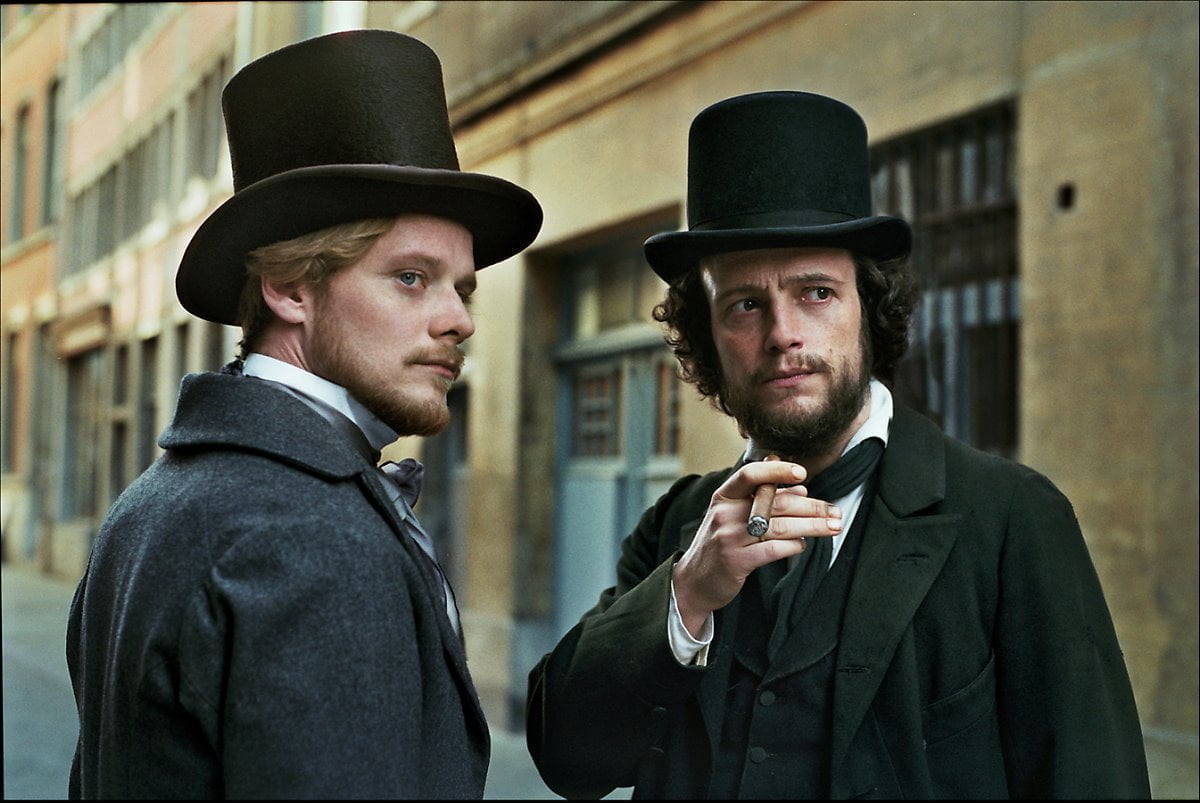Rob Sewell reviews Raoul Peck’s excellent film about the early years of Marx and Engels, which is worthy of a far wider audience.
This long awaited film, directed by Raoul Peck and released in Europe last year, has finally begun to appear in a handful of cinemas in the UK, subtitled in English.
The Young Karl Marx is quite a remarkable film, dealing with the early years of Marx and Engels, and their struggle between 1843-48 to develop a new world outlook.
Unlike in other artistic interpretations, Marx and Engels are depicted here as real human beings, rather than the usual caricatures.
The film begins by showing a Europe dominated by absolute monarchs. England is in the grip of the Industrial Revolution, which has created a new class, the proletariat.
The scene switches to German peasants gathering forest firewood, who are brutally chased and beaten, even killed, by wardens employed by the aristocrat landlords. The young Marx, who is a journalist on the Rheinische Zeitung, takes up the plight of these peasants, denouncing the law on the theft of wood.
The young Marx is not yet a communist but a revolutionary democrat, attacking the injustices and inhumanity he sees around him.
In Cologne, Marx’s radical articles result in the newspaper’s suppression and the arrest of its journalists. He breaks with the radical Young Hegelians and follows his patron, Arnold Ruge, to Paris.
The story then shifts to Manchester and the factory of Ermin and Engels, where there is labour trouble led by Mary Burns. She is sacked and young Friedrich Engels clashes with his father over the treatment of the workers. He follows Mary to an Irish pub and gets assaulted for being the boss’ son. However, he begins a life-long relationship with Burns.
On the basis of what he sees in Manchester, Engels writes his famous book, The Conditions of the Working Class in England in 1844.
We are then introduced to Marx’s life in Paris, with his young wife Jenny, who has just given birth. She is from an aristocratic family, but she gives it all up to be with Marx and live a new life as a revolutionary. She is portrayed in this film as being assertive and independent.
Engels visits Marx and, after a frosty start, they become friends and collaborators. They talk, discuss and drink. Marx concludes that philosophers have interpreted the world but we need to change it. They agree to write a book together, the Holy Family, against the Young Hegelians.
We are introduced to figures such as the radical Proudhon, who demands the abolition of property. Marx also meets Bakunin – as well as Weitling and other revolutionary figures – fleetingly.
We see Marx developing his ideas, especially those around the labour theory of value.
Engels reluctantly returns to Manchester to work for his father. Meanwhile, Marx and his family are expelled from France to Brussels, where he is forbidden from engaging in political activity. With another baby now to feed, an impoverished Marx writes to Engels for help, who sends him money in return.
Marx then visits England, on Jenny’s insistence, to join (along with Engels) a socialist organisation called the League of the Just. They work to move the League away from vague ideas about universal brotherhood, and towards theory and class-based politics. They persuade the League to become the Communist League, and to adopt the slogan: Workers of the World Unite!
The scene shifts to the Red Lion pub in London, where the second congress of the Communist League agrees to ask Marx and Engels to write a programmatic document.
The final scenes of the film shows their frantic work to draft the Communist Manifesto, which finally goes to press in time for the European revolutions of 1848. The words are brilliantly put to graphic images of the proletariat and the revolutionary role of capitalism.
The Young Karl Marx is a truly great film about the early struggle for the ideas and ideals of communism. It needs a much wider audience.






